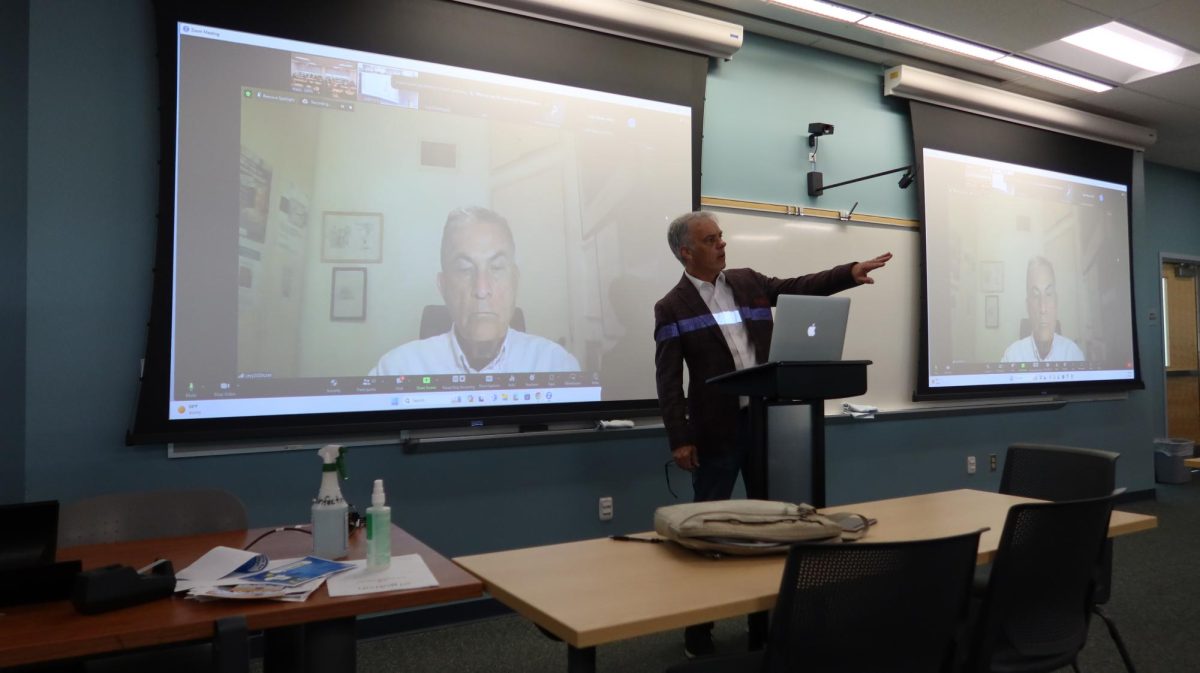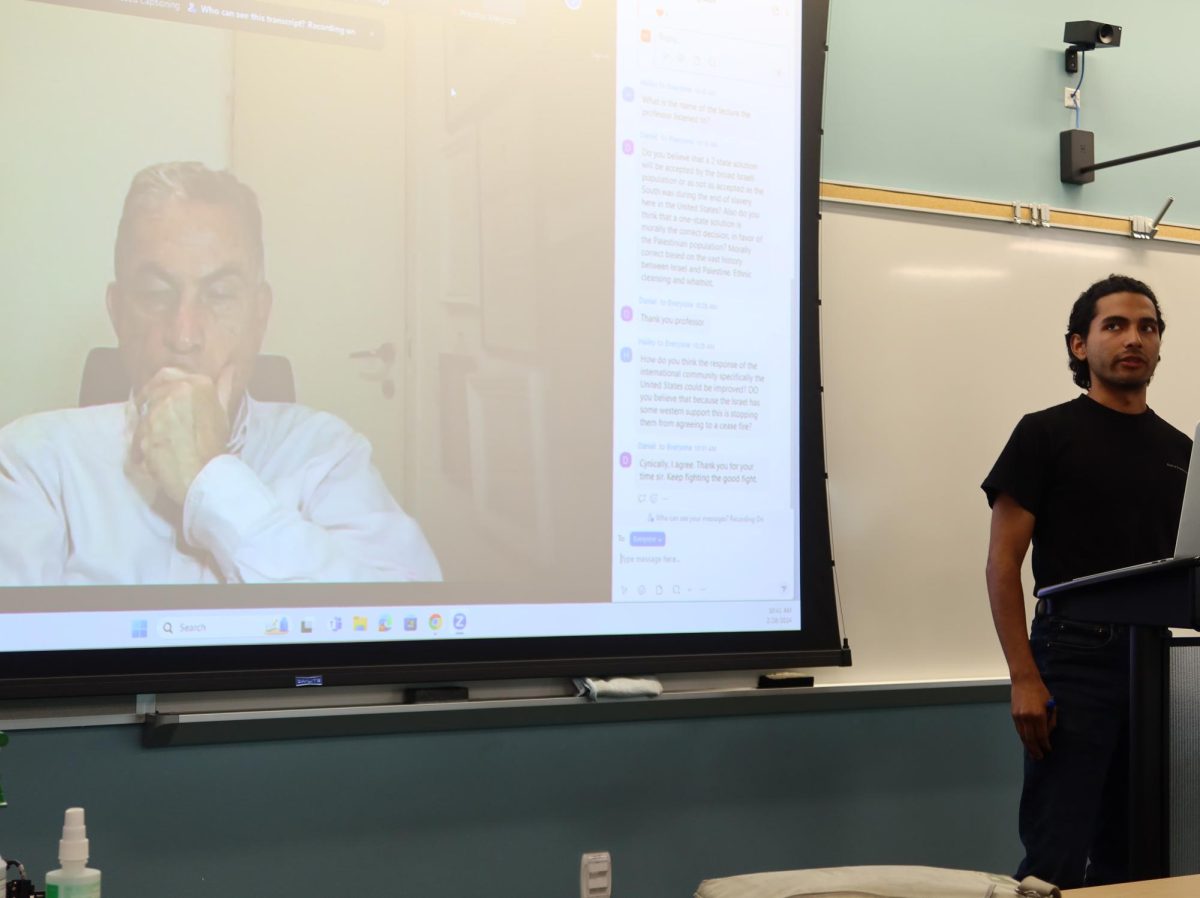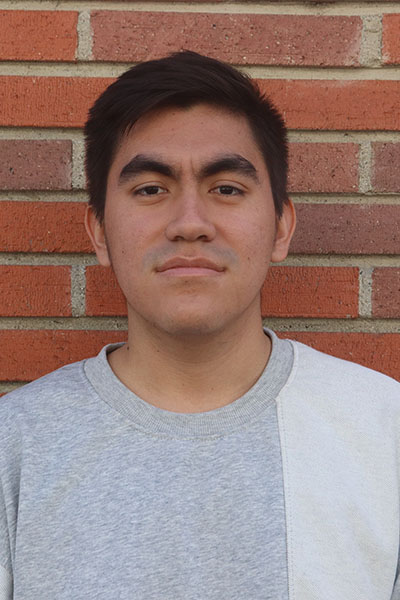Gideon Levy, an award-winning Israeli journalist, recently spoke at Cerritos College via Zoom on Wednesday, Feb. 28., Levy is known for his advocacy for justice for Palestinians in the Israeli-Palestinian conflict.
The event, organized by history professor John Haas, gave Levy an insightful platform for him to share his perspective of the conflict and engage with Cerritos students.
The talk, which took place in room 103 of the Liberal Arts building, saw a class full of people who wanted to listen to Gideon Speak about Israel and Palestine – and that’s not even mentioning the more than 40 individuals who attended the zoom call.
“I’m trying to re-humanize, if I can say so, Palestinians in Israeli eyes, after this ongoing campaign to dehumanize them in any possible way,” Levy said, “I’m not fighting for peace, I’m fighting for justice, peace will be the bonus. We are very far from peace”
Levy emphasized how peace can’t simply be imposed but justice, even if it’s not total justice, can be imposed for the people of Palestine.
“People in your age and people in my age by hundreds of thousands are going through hell and this is not an exaggeration in any way… as we speak in Gaza which is one hour away from my home,” said Levy.
“We cannot let it continue and we should remember all the time that they are human beings just like us, with dreams, with ambitions, with fears with everything that we share and I think first of all we have to perceive them as human beings in dire and horrible conditions.”
Levy has documented and reported on the daily lives of regular Palestinians, first hand from the ground for more than three decades in his column for Haaretz, an Israeli newspaper.
“Gideon Levy has been shot at by Israeli soldiers, threatened to be beaten to a pulp by fellow Israelis and labeled a security risk by Israeli politicians,” said Haas while introducing Levy to the room full of students.
Haas also mentioned how, according to Levy, most Israelis are unaware of the acts of brutality done to the Palestinians by the Israeli security forces and how the media in Israel is mostly complicit.
“He argues because it fails to challenge the narrative that casts Palestinian as nothing more than the enemies of Israel, Levy tries to pierce that bubble with his reporting,” Haas said.
After Hamas’ attack on Israel on Oct. 7, Levy’s initial reaction, like many other Israelis, was in disbelief followed by a sense of dread and trauma after what was happening in the kibbutz was fully realized.
Levy would visit the kibbutz the next day and even walk into some of the homes and described them as a blood bath, “You saw life which was destroyed,” Levy said.
Although the events that unfolded on Oct. 7 were tragic, Levy mainly focused on talking about what the Israeli military occupation looks like for Palestinians and the history dating back to when Israelis arrived after the end of WWII.
“None of us can imagine what does it mean to live under a military occupation of a foreign army… I’m speaking about the daily lives, your time, your dignity, your life, your relatives, your property. Nothing is worth anything in the eyes of the Israeli soldiers,” said Levy.
Levy also answered questions from attendees such as what he thought the motives behind the onslaught on Palestinians were.
Levy said, “It has to do first of all with the way Israel perceives Palestinian lives, there’s nothing cheaper than this in Israel… and there is a very very strong desire to take revenge for what happened on the 7th.”



















